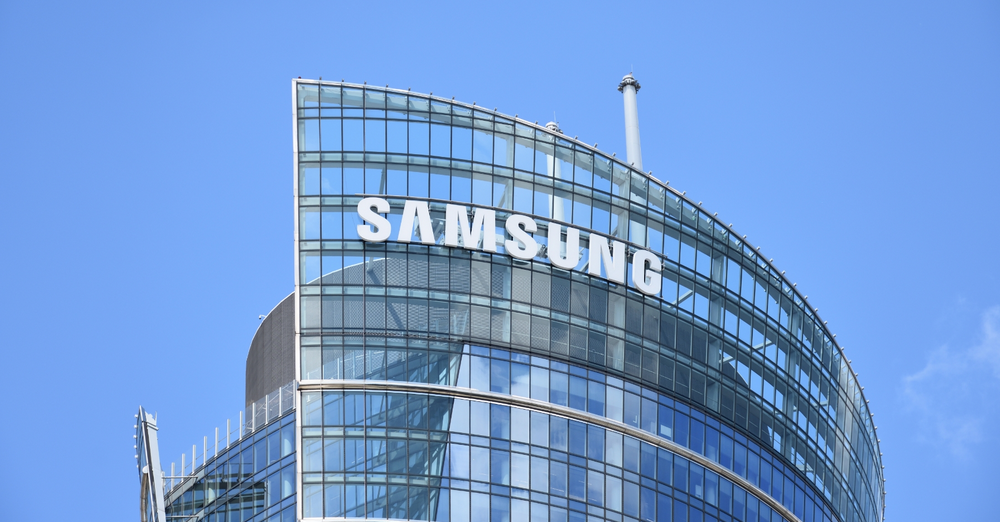Samsung Electronics, South Korea’s largest conglomerate, has seen its stock price drop by over 35% since the beginning of 2024, hitting its lowest level in four years. Analysts point to renewed concerns about Donald Trump’s proposed tariffs on Chinese goods as a key factor behind this dramatic decline.
The decline has been especially noticeable following Trump’s re-election, with Samsung shares falling sharply since November 8, the day after his victory was announced. As of now, Samsung stock trades at slightly over 50,000 Korean won ($36) per share, a level not seen since the initial market panic during COVID-19 lockdowns in March 2020.
The Role of Trump’s Proposed Tariffs
Trump has suggested import duties of up to 10% and 60% on goods from China, sparking widespread concern among global investors. Analysts warn that if these tariffs are implemented, Samsung’s supply chain could be heavily impacted, since the company relies on Chinese manufacturing for a significant portion of its components.
The tariffs could increase the cost of Chinese-made parts, potentially forcing Samsung to raise prices or absorb the extra costs. Both scenarios could reduce demand for its products, affecting revenue across its semiconductor, smartphone, and display divisions.
SK Hynix Could Benefit
Interestingly, while Samsung faces headwinds, SK Hynix, another leading Korean semiconductor manufacturer and Samsung’s primary competitor, might see relative gains. Reuters reports that SK Hynix is less dependent on Chinese assembly lines, making it less vulnerable to tariffs and positioning it to capture market share from Samsung in certain sectors.
Q2 2024 Profits Offer Contrasting Perspective
The current stock slump comes as a surprise given Samsung’s strong performance earlier this year. In August, the company reported an astronomical 1,458% profit in Q2 2024, largely driven by surging demand for AI-related chips. During that period, Samsung’s revenue reportedly increased sixfold, signaling strong market positioning in the semiconductor sector.
However, analysts caution that even record profits cannot insulate Samsung from macroeconomic and geopolitical risks, particularly if US-China trade tensions escalate.
South Korea’s Role and Geopolitical Dynamics
The South Korean government’s stance and its relationship with the Trump administration may influence Samsung’s recovery. Reports suggest that, similar to TSMC, Samsung has sided with Trump by halting sales of advanced semiconductors to Chinese clients, a move that could help it maintain favor with the US but strain its business with China.
President Yoon Suk Yeol expressed concern over Trump’s reelection, warning that higher tariffs could prompt Chinese producers to cut costs, squeezing Korean suppliers in non-US markets. The impact could be felt across industries, from semiconductors to consumer electronics.
Potential Impact on OLED and Display Markets
On the flip side, Trump’s tariffs may benefit Samsung’s and LG’s OLED divisions, as they could pressure Chinese competitors like BOE, TCL, and Tianma, reducing competition in global display markets. If this scenario unfolds, Samsung might offset some losses in its chip business with gains in its display manufacturing sector, highlighting the complex interplay of tariffs and industry dynamics.
What This Means for Investors
For investors, Samsung’s situation illustrates the vulnerability of global tech companies to geopolitical events. Despite strong financial performance and market leadership in semiconductors and smartphones, external risks such as trade tariffs can quickly erode shareholder value.
Analysts recommend monitoring:
-
Developments on Trump’s proposed tariffs and US trade policy.
-
Samsung’s supply chain adjustments and reliance on Chinese manufacturing.
-
Competitor performance, particularly SK Hynix and Chinese OLED manufacturers.
-
Broader geopolitical dynamics between South Korea, the US, and China.
While Samsung’s stock may see volatility in the short term, strategic moves in supply chain management and diversification could help stabilize the company over the long term.
Conclusion
Samsung Electronics’ 35% stock decline in 2024 reflects investor fears over Trump’s potential tariffs on Chinese imports and the broader risks of geopolitical tensions. While competitors like SK Hynix may gain, Samsung’s strong financial fundamentals and diversified business lines, including OLED displays and AI chips, may provide some resilience against supply chain disruptions. The company’s ability to navigate these challenges will likely determine its market trajectory in the coming months.




